The "bleeding shame" driving girls out of school
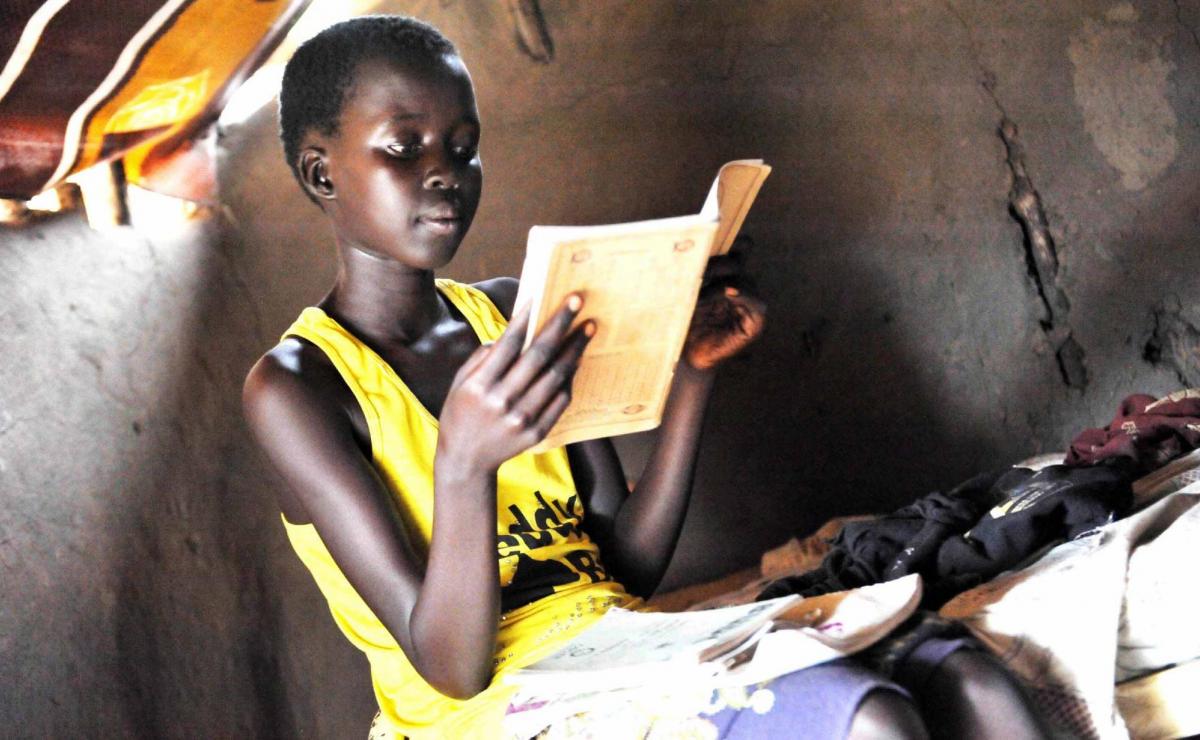
Moyo district - ‘The monthly red tomato is here…’ boys at Belle primary school in Palorinya settlement buzz at sight of menstrual blood stains on girls’ uniforms. This, Peace Julius Juru, a primary six pupil describes as embarrassing and stigmatising to all girls.
“It recently happened to my friend in class, a boy noticed the stains and started chanting ‘the monthly red tomato…,’ he was joined by the rest of the boys as they laughed at her,” said Juru. “Filled with tears, she ran out of class and never came back to school for a couple of days.”
At the school with 2,500 girls, majority of who are South Sudanese refugees, many skip classes for at least three days a month. This, Mary Grace Gala, Belle primary school’s Senior Woman describes a result of menstrual periods, lack of sanitary pads and the fear of the bleeding shame.
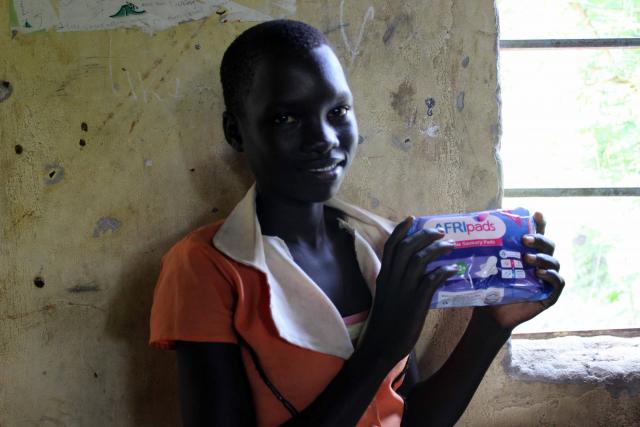
The girl child’s absenteeism due to the "bleeding shame" is not taut to only Belle Primary School, but to majority of schools countrywide. Research by Build Africa indicates that 29.7% of the adolescent girls in Uganda miss a minimum of four days per cycle during the 80 days allocated to a school term, and 24.3% admitted to being stigmatized whenever their clothes get soiled hence staying home until the end of the cycle.
If this trend continues, gains from an increased school enrollment will be reversed and so will the literacy levels; this will affect Uganda and the world’s ability to achieve many of the Sustainable Development Goals (SDGs) by 2030 like; quality education, no poverty, gender equality, decent work and economic growth.
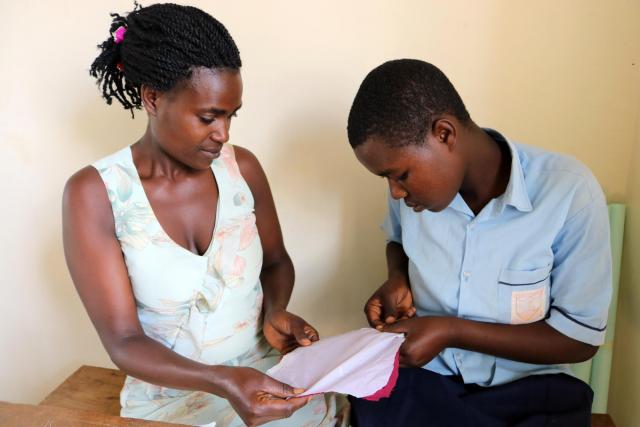
Tattered clothes for makeshift sanitary protection
Since majority of the girls in Uganda’s settlements can’t afford sanitary pads, they opt for tattered clothes. Sanitary pads in Uganda cost more than 2,000 ugx which is much higher than what majority of refugee families can afford.
During her menstrual periods, Juan Betty Tisa a pupil at Belle uses rags which she describes as uncomfortable and unreliable explaining that they can hardly sustain blood long enough to prevent her uniform from getting stained.
“I wrap a sweater around my backside whenever I am going to stand because I can never be sure whether the rags haven’t leaked,” added Tisa who stays home on the first two days of her cycle as she experiences a heavy blood flow that rags can hardly contain.
Winny George Menahal a pupil at Morobi primary school in Palorinya says she can hardly concentrate in class during her periods especially on days when she has used rags for sanitary protection. Attending school on such days is as good as staying home for Menahal. “My confidence vanishes in thin air and uneasiness fills me up, that I hardly understand any lessons.”
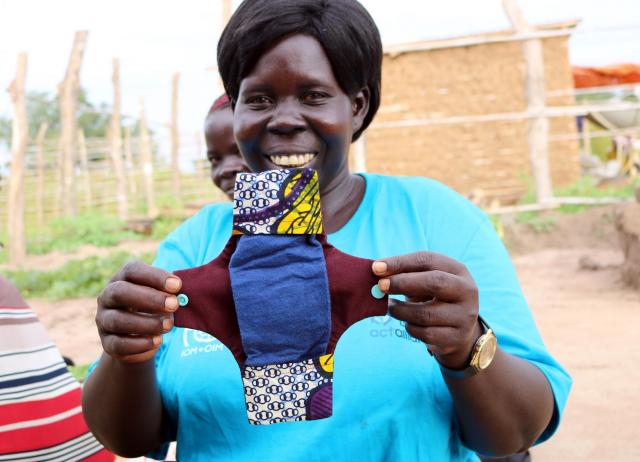
Making the bleeding shame history
To overcome the "bleeding shame" in Palorinya settlement’s primary schools, the Lutheran World Federation (LWF) in partnership with the International Organization for Migration (IOM) provides free sanitary pads to pupils and also sensitizes boys and girls about menstruation.
“I received a free pack of pads from LWF in August,” said Juru. “I need a pack of the like every month, because they are comfortable, they never leak that I don’t have to fear for stains and shame,” added Menehal.
Shyne Nyamatte an IOM project Officer with LWF says that sensitization on menstruation among boys and girls is geared towards creating behavioral change and preventing menstrual stigma by breaking myths and taboos attached to it. “We want teenagers to discuss menses openly and comfortably so that girls can experience menstruation with confidence not shame.”
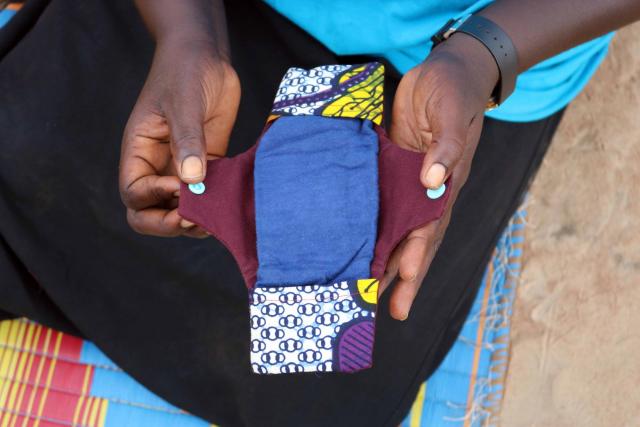
Sanitary pad distribution is aimed at protecting girls from the "bleeding shame" and to also keep them in school as a way of guaranteeing a better future through education. “With good education, comes brighter futures that will help the world to attain the 1st, 4th, 5th and 8th SDGs by 2030,” said Nyamate. “Besides, access to sanitary pads is a health issue and an issue of dignity for girls,”
Nyamatte appeals to the government of Uganda to consider sanitary pads as a basic need in resource allocation or even train pupils on how to make safe reusable sanitary pads and soap for proper menstrual hygiene.
LWF appreciates IOM’s support towards its humanitarian activities aimed at overcoming the bleeding shame as well as improving sanitation and hygiene among school children in Palorinya settlement.

